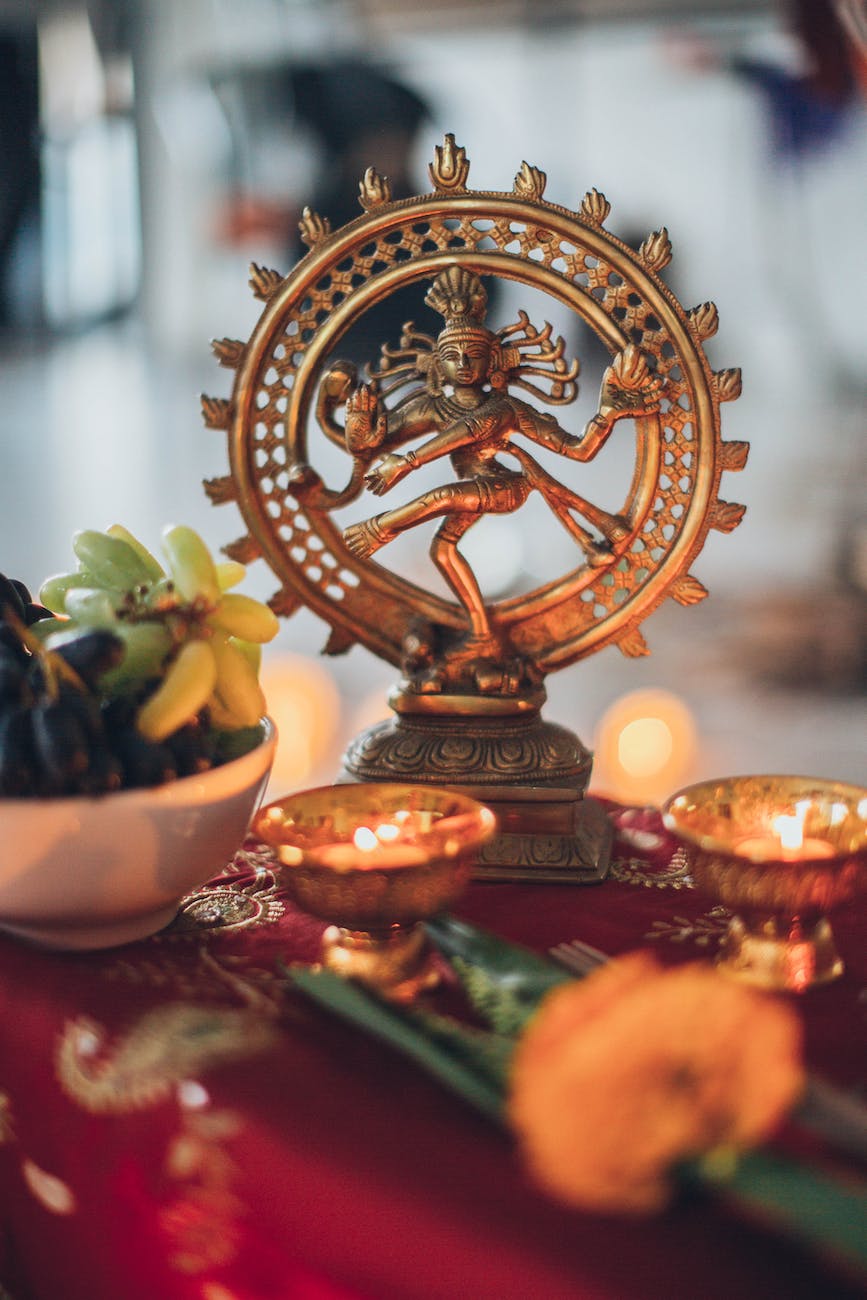Hinduism is one of the oldest religions in the world, with roots dating back thousands of years. It is a complex and diverse religion that encompasses a wide range of beliefs, practices, and traditions. Hindu worshippers worship and serve millions of different kinds of deities. Hinduism is a form of religion where its adherents acknowledge and worship multiple gods, goddesses, and deities which is called polytheism. But some Hindu scholars assert that Hinduism is not polytheistic but believes in one supreme God who can take many forms: male, female, or even animal. This belief was discarded by later Vedic thinkers and replaced with the concept of impersonal divine principle or reality.
Most scholars believe Hinduism started somewhere between 2300 B.C. and 1500 B.C. in the Indus Valley, near modern-day Pakistan. The term Hindu was first used by the Persians, dating back to the 6th century BC, to describe the people living beyond the Indus River. For more than a thousand years the label had no specific religious connotation. In the early 19th century, though, the term Hinduism was coined by British writers to refer to the family of Vedic religious traditions. Some modern Hindus prefer the name “Vedic religion” or Sanatana dharma (“eternal law”) rather than the label Hinduism.
How many deities are there in Hinduism?

In Hinduism, the number of deities can vary depending on different beliefs and interpretations. According to the Vedic texts, there are 33 gods, while the Puranas mention 330 million or more gods. Here are some of the popular Hindu deities:
– Brahma
– Vishnu
– Shiva
– Ganesha
– Lakshmi
– Parvati
– Hanuman
– Surya
– Agni Deva
– Varuna
– Vayu
– Indra
It’s important to note that the concept of multiple gods in Hinduism represents different aspects and manifestations of the divine.
The characteristics of Hindu deities
Hindu gods and goddesses are believed to possess divine qualities and powers. They are often depicted with multiple arms and heads, symbolizing their ability to perform multiple tasks and possess various attributes.
Hindu gods are associated with specific qualities and virtues such as love, compassion, selflessness, power, knowledge, wisdom, and some sort of bad attitudes and characters. They are believed to have the ability to manifest in different forms or avatars to fulfill specific purposes or to guide and protect devotees. Hindu gods are often depicted in vibrant and elaborate forms, adorned with rich symbolism and intricate details. They are worshipped and revered by millions of Hindus worldwide, with each god having their devotees and followers.
Hindu gods are part of a vast pantheon of deities, with some of the most well-known gods being Brahma the Creator, Vishnu the Preserver, and Shiva the Destroyer. The Hindu Trinitarian deities. Each god has their own unique stories, myths, and legends associated with them, which are often found in Hindu scriptures and epics.
Please note that these are general characteristics, and the specific characteristics of each Hindu god can vary based on regional and cultural traditions.
Are Hindu deities “demonic” in origin?
When it comes to the Christian-Biblical worldview, every faith and religion that does not conform to the Gospel of Christ is not only false but ultimately inspired by false spirits or demonic forces.
Biblical passages such as Deuteronomy 32:16-19; 1 Corinthians 10:20; and 1 Timothy 4:1 tell us enough that demonic powers and intelligence are behind false religion, and even behind false theology in Christian congregations.
The activities of Satan and his demonic forces are not given much press between the covers of Scripture and deservedly so, since the Bible is primarily about God and his acts and his Kingdom and not about the other side. On the other hand, Paul can write that he and the early congregation were not ignorant of the Devil’s schemes (2 Corinthians 2:11).
Remember that the Devil “leads the whole world astray”. (Revelation 12:9, NIV) Satan is the masterpiece of all lies and deception. — John 8:44
Conclusion
This necessarily brief review of Hinduism has shown that it is a religion of polytheism based on monotheism—belief in Brahman, the Supreme Being, source, or essence, symbolized by the syllable OM or AUM, and with many facets or manifestations. Though the Hindu religion is rich in diverse cultures, the kind of worship they impose does not conform to the truth of the one true supreme God who created the entire world.
Instead of following the ways of the pagans, the one true God, who is worthy of all praise and worship, commands us: “Thou shalt not make unto thee a graven image, nor any likeness of anything that is in heaven above, or that is in the earth beneath, or that is in the water under the earth. Thou shalt not bow down thyself unto them, nor serve them, for I Jehovah thy God am a jealous God, visiting the iniquity of the fathers upon the children, upon the third and upon the fourth generation of them that hate me. and showing lovingkindness unto thousands of them that love me and keep my commandments.” — Exodus 20:4, 5, 6
Latest Posts
- Presidential Debate Highlights: Donald Trump vs. Joe Biden |
- China dams release water, submerging more cities and flooding more streets |
- Terror attack in Dagestan, Russia kills police, priest and destroyed churches and synagogues |
- Why is Jesus an “Archangel”, not God Almighty himself? |
- Terrorist weapon supplier killed in Lebanon strike, Israel reports |

